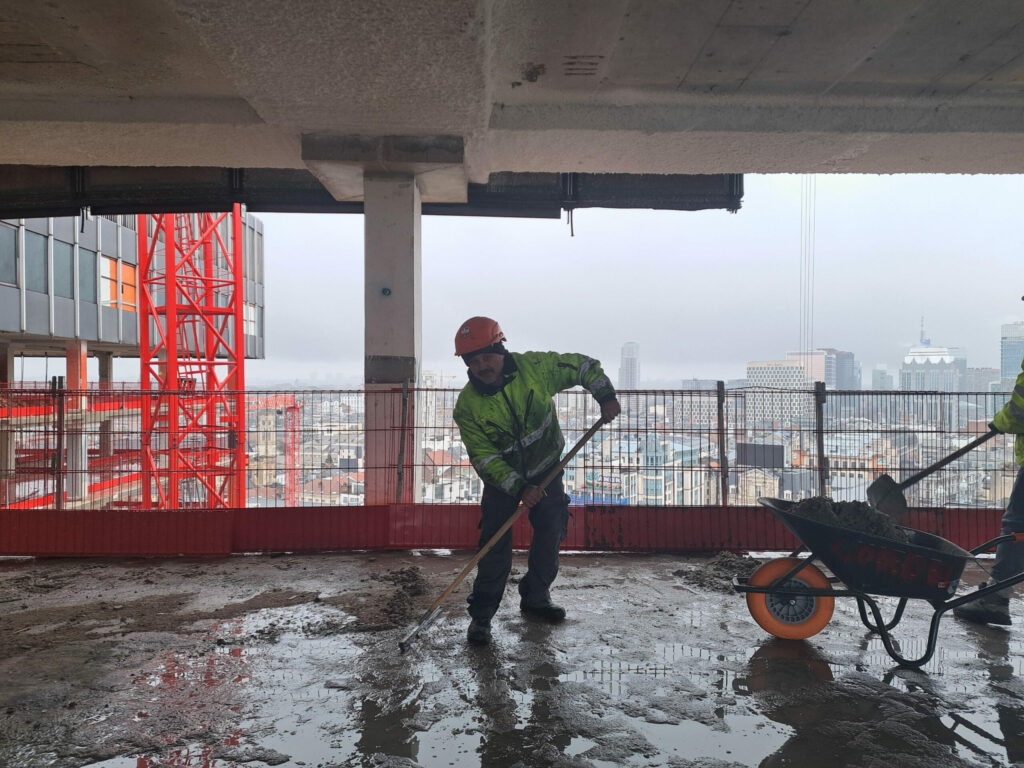Belgians are born with a hunger to build, so the saying goes, and construction sites are a common sight wherever you go in the country. But work has been severely disrupted over the past six months as the sector has been beset by the wettest winter period in 50 years.
Whilst Belgium is also renowned for its damp conditions, this period has been truly exceptional. The Royal Meteorological Institute has confirmed that the period from October to March has been the wettest since 1970. This was only beaten in 1902.
The especially humid conditions have been problematic for construction works and have led to three-quarters (74%) of projects being pushed off-schedule by the persistent rain. The average delay time is between two and four weeks, though almost one-third of projects have been set back by even longer.
"Due to the wet weather, the bricks adhere less well and dry less easily. There is also a greater risk of white spots and lime efflorescence. It is therefore best not to lay bricks when it rains. Moreover, a construction site becomes less safe and difficult to access for employees and machines," Niko Demeester, the CEO of Belgium's construction federation Embuild, told VRT.
But Demeester says that despite the remarkable challenges posed by the inclement weather, many clients are unsympathetic to the difficulties. An Embuild survey of several hundred ongoing construction projects found that about 40% of clients fail to appreciate the impact this has on work and show little understanding when their projects are consequently delayed.
Related News
- The full list: Bauhaus Prizes awarded to sustainable, inclusive and beautiful projects across Europe
- Brussels social housing needs €300 million to continue building projects
The industry representative implored the public to be understanding and said the poor weather is "a clear case of force majeure". 14% of construction companies are working overtime to catch up with the backlog and others are not taking on more work. But conditions so far in April have only prolonged the problem.
Nonetheless, Belgium's consumer ombudsman has been flooded with complaints and last year recorded an absolute record for reports from dissatisfied customers. The service has plans to create a separate branch dedicated to issues relating to construction; this should be operational by 2026.
A high vacancy rate within the construction sector is also slowing work. Demeester says that some 14,000 additional workers are needed for the sector to be able to meet commitments and highlights the national need for new houses, making this a matter of urgency.

